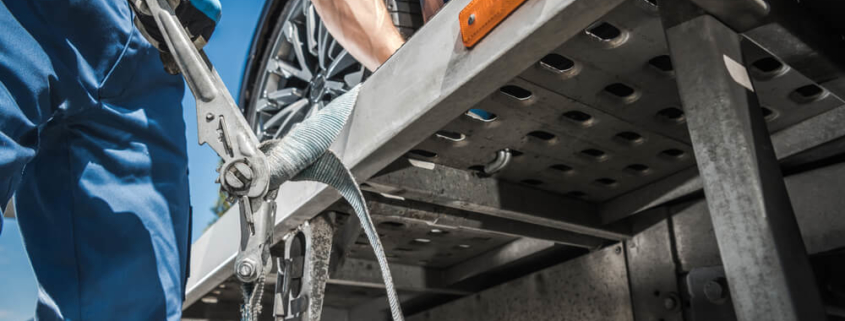Will My Car Be Repossessed If I File for Bankruptcy?
Depending on where you live, it’s often a necessity to own a car for work, school, and other daily necessities. When you’re struggling to make ends meet, you might fall behind on your vehicle payments in addition to some other credit accounts. Having your car repossessed would make a stressful situation even worse.
Repossession of a vehicle can be upsetting under any circumstances. If you are thinking about filing for bankruptcy, can the lender still repossess your car? And, if your car has already been repossessed, will bankruptcy help you get it back? Here’s what you need to know.
Filing Bankruptcy to Save Your Car
Car loans use the vehicle as collateral, meaning the lender has the right to repossess the property if you don’t make your payments. In fact, vehicle repossession can happen as soon as missing two car payments.
If you file bankruptcy before a lender repossesses your car, this will put an automatic stay on debt collectors. Repossession proceedings will stop. But bankruptcy isn’t a means to get a free car.
Bankruptcy, whether you file Chapter 7 or Chapter 13, will give you relief from unsecured debt. A car loan is considered secured debt. In most cases, the debt relief you receive will help free up cash so that you can catch up on your loan payments and save your car. But neither type of bankruptcy will help you keep a vehicle that you can’t afford. That said, the type of personal bankruptcy you file could impact how much you have to pay.
Chapter 7 Bankruptcy
You may be able to work with your lender in some situations to refinance or modify your loan. If you can come to an agreement with your lender during the Chapter 7 bankruptcy process, you will likely need to sign a reaffirmation agreement outlining the new terms. When you sign this form after you file for bankruptcy, the lender has “refreshed” their right to repossess the vehicle if you don’t adhere to your end of the deal.
Chapter 13 Bankruptcy
Chapter 13 bankruptcy involves a repayment plan that lasts anywhere from three to five years. Your vehicle loan can be included in this plan, giving you reduced payments at a lower interest rate. This can make your car more affordable and less likely to get repossessed.
Using Redemption or Reinstatement After Repossession
Assuming your car has already been repossessed, you may or may not be able to get it back through the bankruptcy process. If you do nothing or wait too long, the vehicle will be sold at auction. If it is sent to auction and the lender gets less than you owe for it, you’ll be presented with a loan deficiency, which is a bill for the difference. Again, the type of bankruptcy you file can impact your situation with a car that’s already been repossessed.
Chapter 7 Bankruptcy
If you want to get the car back and it’s still available, you will need to pay what you owe to the lender. You may also have the opportunity to reaffirm the loan and negotiate more favorable terms.
If you don’t want the car back or it’s already been sold, you can include the vehicle loan deficiency in your bankruptcy. It becomes an unsecured debt, meaning you’ll likely be able to get it discharged.
Chapter 13 Bankruptcy
If your vehicle has been repossessed and you want it back, Chapter 13 is also an option. But it only makes sense if you are also filing to keep your home and other valuable assets. With this type of bankruptcy, you will negotiate an affordable payment plan with your creditors over the next three to five years.
Protecting Your Car Equity in Personal Bankruptcy
When you file for Chapter 7 bankruptcy and wish to keep your vehicle, you also have to be concerned with your car’s equity. You are only permitted to keep so much property in a Chapter 7 bankruptcy. Otherwise, the trustee will sell non-exempt items to raise cash for creditors.
Most states have motor vehicle exemptions allowing you to keep a certain amount of a car’s equity. You may also be able to use part of a wildcard exemption to meet the requirement to keep your vehicle.
If you have overdue payments or equity you are unable to protect, you may be better off filing for Chapter 13 bankruptcy. You can catch up on your payments with the repayment plan and maintain possession of the car.
If you are concerned about your transportation options or have questions about a vehicle repossession, an experienced bankruptcy attorney can give you the information you need. Gulf Coast Bankruptcy Attorney is dedicated to providing residents of the Gulf Coast with the resources necessary to make informed decisions about their financial future.



 What Are Alternatives to Bankruptcy?
What Are Alternatives to Bankruptcy?
Leave a Reply
Want to join the discussion?Feel free to contribute!